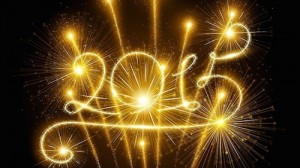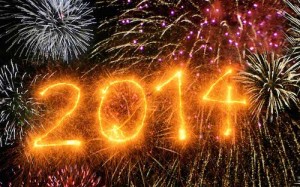The Year Ahead: What I Hope to Learn About Writing in 2015
Happy New Year! It’s the beginning of 2015, and that means it’s time to think about our plans for the year ahead. After reviewing what I’ve learned about writing in 2014, here’s what I still hope to learn in 2015. Enjoy!

How to keep balancing grad school and my blog
Like I mentioned last week, managing grad school and a creative writing blog at the same time is hard work, and it’ll definitely be even more difficult now that I’m going into the second year of my Master’s program. It’s going to take a lot of organizational skill, something I seriously lack, so I expect to face plenty of challenges when it comes to writing in 2015, both scientifically and artistically. Still, I’m confident I’ll be able to manage it somehow; if I’ve made it this far without failing, I’m sure I can last another year!
How to better network with other writers and readers
Networking is something I’m still trying to figure out. Though I have done my research on social media and actively maintain my profiles as best I can, I still feel like a newbie when it comes to actually connecting with other writers and readers. Maybe it’s my lack of real-life social skills showing in my online persona, but I just can’t seem to develop the proper habits to build a solid and extensive network with fellow artists and a potential audience. Hopefully that’ll change in 2015; I’d like to connect with as many writers and readers as I can!
How to find the time to actually write those novels
I’ll probably be too busy to finish writing a book this year, but I’d still like to figure out how or even if I can manage to find the time to work on those novels I’ve been planning to write. Planning is important, and I’ve gotten plenty of that done already, but it means nothing if I never get those ideas written out, right? If all goes well, I hope I can get a decent amount of novel writing done in 2015!
What about you? What are your plans for 2015?
Word of the Week: Inception
Word: inception
Pronunciation: in-SEP-shən
Part of Speech: noun
Definition: the establishment or starting point of an institution or activity
Source: Oxford Dictionaries
Sorry, I couldn’t resist. You know you were thinking it too. After all, Mike Zarin’s iconic sound from the Inception trailers has been an Internet meme for years. But today’s post is not about the 2010 blockbuster film; it’s about the title word and what it represents. This one’s been sitting in my vocabulary list for a while, and since it’s the start of a new year, I figured now would be the best time to write about it.
The “inception” of an activity or institution is its beginning or point of origin. The word arose in late Middle English and comes from the Latin noun inceptio, meaning “beginning” or “undertaking”. This noun in turn is derived from the verb incipere, which means “to begin”.
Though I’m sure I must have heard the word “inception” at least a few times before the famous trailers started popping up, I never really thought about what it meant until after I watched the movie. Obviously, it couldn’t literally be the implantation of an idea in a person’s mind through shared dreams; otherwise the word would only ever come up in science fiction. “Inception” is still an appropriate title for this story, however, as it centers on the concept of initiating the growth of an idea that can change a person’s entire life. You’ll likely never use it in such a specific context (especially since it’s clearly been done already), but “inception” is still a good word to remember for whenever your characters embark on a new enterprise. So on that note, let’s celebrate the “inception” of what will hopefully be a year full of promising new endeavors! Cheers, and Happy 2015!
What are your thoughts on this word? Any suggestions for future “Word of the Week” featured words?
A Year Begun
How has an entire year
Already gone by since
People were last here to
Party ’til midnight and beyond?
Yesterdays vanish like a dream.
Now the countdown begins.
Everyone sounds off the seconds,
Waiting for midnight… Three… two… one…
You and I cheer with everyone as fireworks
Explode and shower the sky in vivid colors.
After tonight, I’m filled with excitement,
Ready to start an amazing new year!
Happy New Year, dear readers! May you all have a wonderful and prosperous 2015 full of love, happiness and creative inspiration! Bless you all!
The Year in Review: What I’ve Learned About Writing in 2014
It’s the last day of 2014, and you know what that means: time for a recap of the year! To celebrate the turn of the year, here’s a brief review of what I’ve learned about writing in 2014. Enjoy, and Happy New Year!

Juggling grad school and a blog is hard work…
I was admitted into a graduate program at the beginning of this year (yay!), and I’m now halfway toward achieving a Master’s degree in Marine Ecology. While I have been enjoying the experience so far (stressful as it may be at times), it also takes away from the time I would otherwise spend writing creatively. Sometimes I have to spend all day at my university, and even when I don’t, there are still scientific papers to read and lab files to organize for my thesis. With everything I have to handle at once, I’ve come to learn a harsh truth: multitasking is hard!
…but miraculously, I can do it.
Despite the challenges of balancing these passions of mine, I’ve still managed to keep up with my creative writing. I haven’t yet fallen behind schedule on my blog posts, and I still stay ahead on ideas for upcoming topics. Let’s hope it stays that way; next year is going to prove even more challenging!
Scientific writing and artistic writing are surprisingly similar…
Whether written for a scientific journal, a literary magazine or a book, prose is prose, and all of it is subject to a basic foundation of rules. Aside from obvious guidelines such as grammar and spelling, scientific papers and fictional stories both have to follow a set structure in order to be complete, that is, they need a clear beginning, middle and end. Both require a ton of editing and proofreading before being released to the public, and when not written well, expect a storm of criticism to rain down shortly after publication.
…yet also very different.
Scientific writing requires that you follow strict formatting rules (so strict, in fact, that one mistake can get your whole paper rejected for publication), while artistic writing offers much more freedom to experiment. Art is also considerably more flexible about getting facts straight than science. In other words, there are plenty of things you can get away with in art that you can’t in science. But more on that subject later.
Writing is and always will be my one true calling.
Whatever I do in my life, there will be times when I seriously doubt if I have what it takes to be successful at it. It’s happened with my singing, with my video editing and even with science. The only exception is writing. Though I’ve dealt with my fair share of doubts and stress when it comes to my writing, I have never once questioned if it’s something I was born to do. I know it is. It’s embedded in the very core of my soul. And it always will be.
So what about you? What have you learned about your writing in 2014?
Word of the Week: Iridescent
Word: iridescent
Pronunciation: i-ri-DE-sənt
Part of Speech: adjective
Definition: showing luminous colors that seem to change when seen from different angles
Source: Oxford Dictionaries
It’s no secret that I love colors. This was made especially obvious in my vocabulary post about the word “opalescent“. Colors are fun to write about, so it makes sense that I use several different color-themed adjectives in my stories and poems. And among my favorites, after its aforementioned synonym, is “iridescent”.
An “iridescent” object is one with various bright colors that appear to change depending on the angle from which they’re seen. The word was coined around the late 18th century, and comes from the Latin noun iris, which means “rainbow”.
I write about colors so often that I could probably come up with a hundred different examples of how I might use “iridescent” if I tried. A notable instance is in my story “The Silver Queen“, where I used it to describe the colorful scales of dragons. I think the reason I like this word so much is its connection to the image of rainbows, so if you like writing about anything bright and multicolored, “iridescent” is the word for you! Have fun!
What are your thoughts on this word? Any suggestions for future “Word of the Week” featured words?


Recent Comments